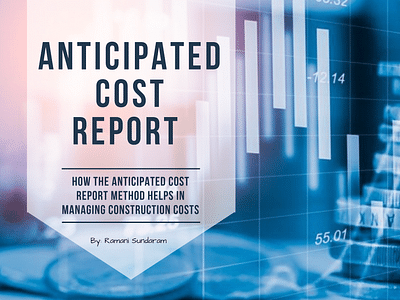- Mastering construction budgeting is essential for successful projects.
- A construction budget is a financial plan that outlines the estimated costs of a project.
- Advanced budgeting strategies like value engineering and lifecycle costing can save money and increase efficiency.
- Practical tips for construction budgeting include accurate cost estimating, contingency planning, regular monitoring and revision, collaboration, and using budgeting software.
🏗️ Welcome to the World of Construction Budgeting: A Primer
Mastering the art of budgeting in the construction industry is key to successful projects. Without a well-planned budget, even the best construction projects can face financial issues. Mistakes can cause expensive delays and even legal problems. So, understanding budgeting isn't just an option; it's a must.
Don't worry! This article will guide you through the complex world of construction budgeting. We'll share effective budgeting tips and strategies to avoid common mistakes, increase efficiency, and save money. You'll also get a detailed construction budget breakdown and a project budget example to help you manage your construction budget better.
So, are you ready to change your approach to budgeting for construction projects? Let's get started!

🔍 Unraveling the ABCs of Construction Budgeting
Mastering the art of budgeting in construction is like learning a new language. It's about understanding the key terms, elements, and steps to create a strong construction budget. Let's explore the heart of construction budgeting and its fundamental aspects.
At its core, a construction budget is a financial plan that outlines the estimated costs of a project. It includes everything from labor and materials to equipment and permits. But how do you create one? It starts with careful planning. You need to identify all potential costs, measure them, and then prioritize. It's like solving a complex puzzle, where each piece represents a different expense. Learn more about the process of project cost estimation.
Does it sound daunting? Fear not! With the right approach and tools, this task becomes less intimidating and more manageable. Imagine this: A project manager at a busy construction site, blueprints in hand, carefully overseeing each element of the budget. This could be you, confidently guiding your project to success.
Remember, a well-planned construction budget is more than just a list of expenses. It's a strategic tool that helps you manage resources, control costs, and make informed decisions. It's the compass that guides your project from start to finish. Ready for a deeper dive into advanced construction budgeting? Check out our tips on reducing average costs.
Average Construction Budget Breakdown
🚀 Skyrocket Your Savings: Advanced Budgeting Tactics in Construction
Ever wonder how leading construction companies maintain their edge? The secret lies in their advanced budgeting strategies. By implementing methods such as value engineering, design-to-cost, and lifecycle costing, these industry leaders are redefining the standards for construction budget management.
Value engineering, for instance, is a systematic method to improve the "value" of goods or products and services. It's all about achieving the necessary functionality at the lowest cost. On the other hand, design-to-cost ensures the project's design adheres strictly to the budget, eliminating unnecessary expenses from the get-go. And let's not forget about lifecycle costing, an approach that considers the total cost of ownership, from acquisition and operating costs to the disposal cost of the project.
So, what's the real-world impact of these advanced construction budgeting strategies? They help companies save money, increase efficiency, and reduce errors and delays. Imagine having a construction budget breakdown that's optimized to the point of near-perfection. That's the power of advanced budgeting in construction!
But don't just take our word for it. Let's delve deeper into these strategies and learn how you can apply them to your construction projects. Ready to revolutionize your budgeting approach?
Advanced Budgeting Strategies in Construction
Now that we've explored the advanced budgeting methods used by leading construction companies, let's take a closer look at each strategy. We'll examine the concept behind each method, the benefits they offer, and any potential drawbacks to consider.
| Strategy | Concept | Benefits | Drawbacks |
|---|
| Value Engineering | A systematic method to improve the 'value' of goods or products and services by achieving the necessary functionality at the lowest cost. | Optimizes cost and enhances functionality. Can lead to significant savings. | Requires a deep understanding of the project's functionality. Can lead to compromised quality if not properly implemented. |
| Design-to-Cost | Ensures the project's design adheres strictly to the budget, eliminating unnecessary expenses from the start. | Helps control costs from the design phase. Promotes efficiency and cost-effectiveness. | Can limit design flexibility. Requires accurate cost estimation from the onset. |
| Lifecycle Costing | An approach that considers the total cost of ownership, from acquisition and operating costs to the disposal cost of the project. | Provides a comprehensive view of costs. Helps in long-term budgeting and planning. | Can be complex to calculate. Requires forecasting of future costs and risks. |
With a clear understanding of these advanced budgeting strategies, we can now move on to practical tips that can further enhance your construction budgeting process. Let's dive in!
💡 Practical Pearls: Enhancing Your Construction Budget Management
Improving your skills in construction budget management needs more than a basic grasp of the figures. If you're looking to enhance your methods, here are some advanced budgeting tips for construction that can help you reach your targets.
Firstly, never underestimate the power of accurate cost estimating. This is the foundation of any construction budget and can make or break your project. Think about investing in professional estimating services or advanced software for accuracy.
Next, contingency planning is crucial. Unexpected costs can pop up in any project, so reserving a part of your budget for such situations can prevent financial troubles later on.
Remember the saying, "Change is the only constant"? This is true in construction budgeting. Regular monitoring and revision of your budget is needed to keep up with changes and tweak as required.
Also, don't undervalue the importance of collaboration. Teaming up with stakeholders, like architects, contractors, and clients, can align expectations and avoid expensive miscommunications.
Lastly, consider using budgeting software. These tools can make the budgeting process easier, enhance accuracy, and offer useful insights. So, are you prepared to elevate your construction budgeting?
Practical Tips for Managing Construction Budgets
- Accurate Cost Estimating: Prioritize accurate cost estimating. Consider investing in professional estimating services or advanced software to ensure precision. The more accurate your estimates, the more reliable your overall budget will be.
- Contingency Planning: Always set aside a portion of your budget for unexpected costs. This can prevent financial strain later on and keep your project on track even when unforeseen expenses arise.
- Regular Monitoring and Revision: Keep in mind that change is the only constant in construction budgeting. Regularly review and revise your budget to adapt to changes and make necessary adjustments.
- Collaboration: Collaborate with all stakeholders, including architects, contractors, and clients. This ensures everyone's expectations are aligned and can help avoid costly miscommunications.
- Use of Budgeting Software: Utilize budgeting software to streamline the budgeting process. These tools can enhance accuracy, provide valuable insights, and make the entire process more manageable.
Construction Budgeting Knowledge Test
Test your understanding of budgeting in the construction industry. This quiz will challenge your knowledge on cost estimation, contingency planning, budget monitoring, collaboration, and the use of budgeting software.
Learn more about 🏗️ Construction Budgeting Knowledge Test or discover other GreatBuyz quizzes.
🌟 Learning from the Best: Successful Construction Budgeting Case Studies
Let's explore the world of construction budgeting with real-life success stories. We've collected case studies that show the effectiveness of advanced construction budget strategies. These aren't just stories, they're lessons in concrete and steel.
Ever wondered how a construction project stayed under budget despite unexpected challenges? Or how a project manager cut significant costs without sacrificing quality? That's the magic of advanced construction budgeting.
Our first case study highlights a commercial building project that used value engineering to optimize costs. The project manager collaborated with the design team to find cost-saving opportunities without losing functionality or aesthetics. The result? A stunning building delivered under budget.
Another case study showcases the power of lifecycle costing in a residential construction project. By considering the total cost of ownership, including maintenance and operational costs, the project team made smart decisions that saved money in the long run.
These real-world examples show how advanced budgeting strategies can turn potential financial pitfalls into savings opportunities. Ready to learn how to budget in construction like a pro? Let's dive into the details.
Now, let's visualize these case studies with a detailed presentation. We will explore the key strategies used, the results achieved, and the lessons learned.
As we've seen, these advanced budgeting strategies can make a significant difference in the success of a construction project. Now, let's move on to our conclusion where we'll discuss how to maximize efficiency in construction budgeting.
🎯 Aiming for Efficiency: Mastering the Art of Construction Budgeting
As we explore the world of advanced construction budgeting, it's clear that these strategies are more than just ideas. They're practical tools that can change how you handle your construction budget. From value engineering to lifecycle costing, these methods have shown their value in real-world situations, helping businesses save money, boost efficiency, and cut down on mistakes and delays. That's the goal, right?
But remember, the construction industry is always changing. The budgeting tips we've discussed today might need to be tweaked tomorrow. Staying on top of the latest construction budget strategies is more than a good idea, it's a must. The ability to adapt and evolve is what makes a construction firm successful. Are you up for the challenge?
Every construction project budget example we've looked at teaches us one thing: mastering budgeting isn't a one-time thing, it's a process. It needs ongoing learning, regular practice, and the guts to make tough decisions when necessary. Whether it's a simple construction budget breakdown or a complex budget management system, every part of budgeting is a chance to do better.
So, are you ready to level up your construction budgeting skills? The future of construction budgeting is here, and it's more thrilling than ever!
How would you rate your current construction budgeting practices after reading this article?
We're interested in knowing if our advanced budgeting tips and strategies have helped you rethink your current practices. Please share your thoughts!
Karl Ortiz
Karl Ortiz, a passionate tech connoisseur and savvy deal finder, excels at discovering the most exciting bargains on electronics and gadgets. Armed with a degree in computer science, Karl stays on top of current tech trends and cost-effective alternatives. Outside of his professional life, he relishes the chance to experiment with new gadgets, delve into video games, and embrace the wonders of the outdoors.






















0 Comments